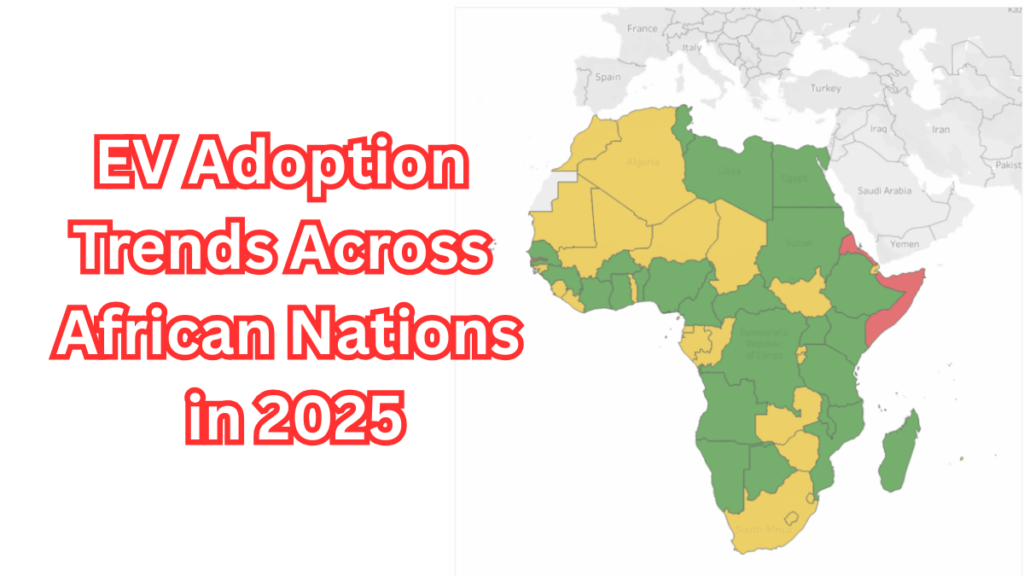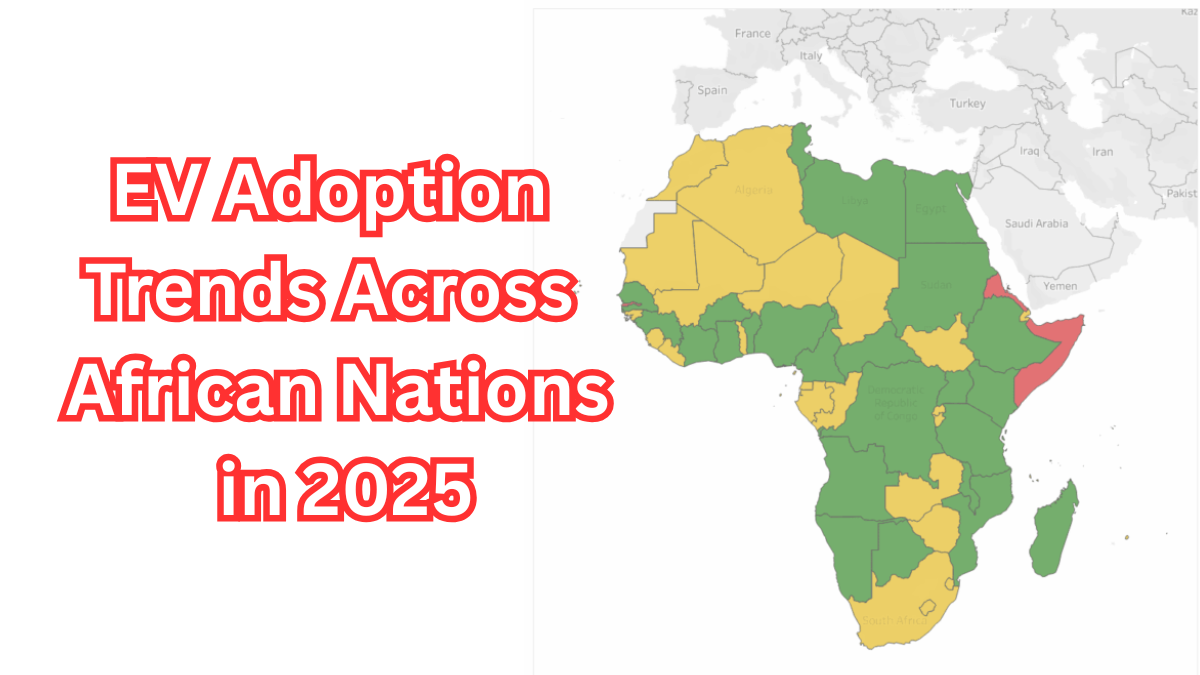As the global push toward sustainability gains speed, EV adoption in Africa is seeing a significant rise in 2025. From urban business districts to small-town roads, electric vehicles are becoming a more common sight, signaling a powerful shift toward clean transport.

Why Africa is Embracing Electric Mobility
Several African nations are adopting EVs as part of a broader clean energy movement. The primary factors behind this transition include:
-
Reducing reliance on imported fossil fuels
-
Combatting rising urban pollution levels
-
Harnessing Africa’s rich solar energy potential
-
Boosting economic opportunities through green tech
The increased focus on clean transport also aligns with the global climate agenda and national development goals.
Country-Wise EV Adoption Overview (2025)
Here’s a comparative view of how various African countries are progressing with EV adoption this year:
| Country | EV Penetration (2025) | Key Initiatives | Charging Infrastructure Growth |
|---|---|---|---|
| South Africa | 7.8% | Tax breaks, EV import duty reductions | Major cities now have over 500 stations |
| Kenya | 6.1% | National e-mobility strategy, green energy focus | Highway charging hubs introduced |
| Rwanda | 9.4% | Public EV transport projects, tax relief | Solar-powered stations on the rise |
| Morocco | 5.6% | Local EV production, EU green deals | Fast-charging corridors being built |
| Nigeria | 4.2% | Lagos EV roadmap, pilot ride-share EVs | Private sector partnerships expanding |
What’s Fueling EV Growth in Africa
The growing interest in EV adoption in Africa is backed by multiple real-world benefits:
-
Cost Savings: Lower running and maintenance costs for EVs
-
Energy Synergy: Solar power is already widespread, easing integration
-
Job Creation: New opportunities in manufacturing, charging, and servicing
-
Cleaner Cities: Reduced urban emissions and noise pollution
Key Challenges in EV Rollout
While momentum is growing, several hurdles still need to be addressed:
-
Limited charging infrastructure in semi-urban and rural areas
-
High purchase price of EVs compared to petrol alternatives
-
Lack of EV-specific financial products or auto loans
-
Public awareness still low in many regions
Innovative Trends Emerging in 2025
Some standout developments shaping the future of clean transport in Africa include:
-
Battery-swapping stations in Nairobi and Kigali
-
E-bike and e-boda boom in Uganda and Nigeria
-
EV-only transport zones piloted in several capitals
-
Smart fleet tracking apps for commercial EVs
These trends highlight how Africa is not just following global EV patterns but also crafting its own innovation-led path.
The Road Ahead
Looking ahead, the acceleration of EV adoption in Africa will depend on sustained policy support, affordability, and grassroots innovation. With international collaborations and local solutions gaining traction, Africa’s role in the global clean energy transition is becoming more prominent.
FAQs
Q1. Which African country is leading in EV adoption in 2025?
Rwanda currently leads the pack with a 9.4% EV adoption rate, thanks to strong government support and a focus on solar charging infrastructure.
Q2. What types of electric vehicles are most common in Africa?
Electric two-wheelers and buses are the most widely adopted, particularly for public transport and last-mile delivery.
Q3. Are there enough charging stations across Africa?
While urban areas in countries like South Africa and Kenya are well-equipped, rural regions still face infrastructure gaps that need addressing.
Q4. How affordable are EVs for the average African consumer?
Affordability is improving with tax breaks, government subsidies, and locally assembled EV options becoming available.
Click here to learn more
Sachin is a dedicated writer specializing in education, career, and recruitment topics, delivering clear and actionable insights to empower readers.
